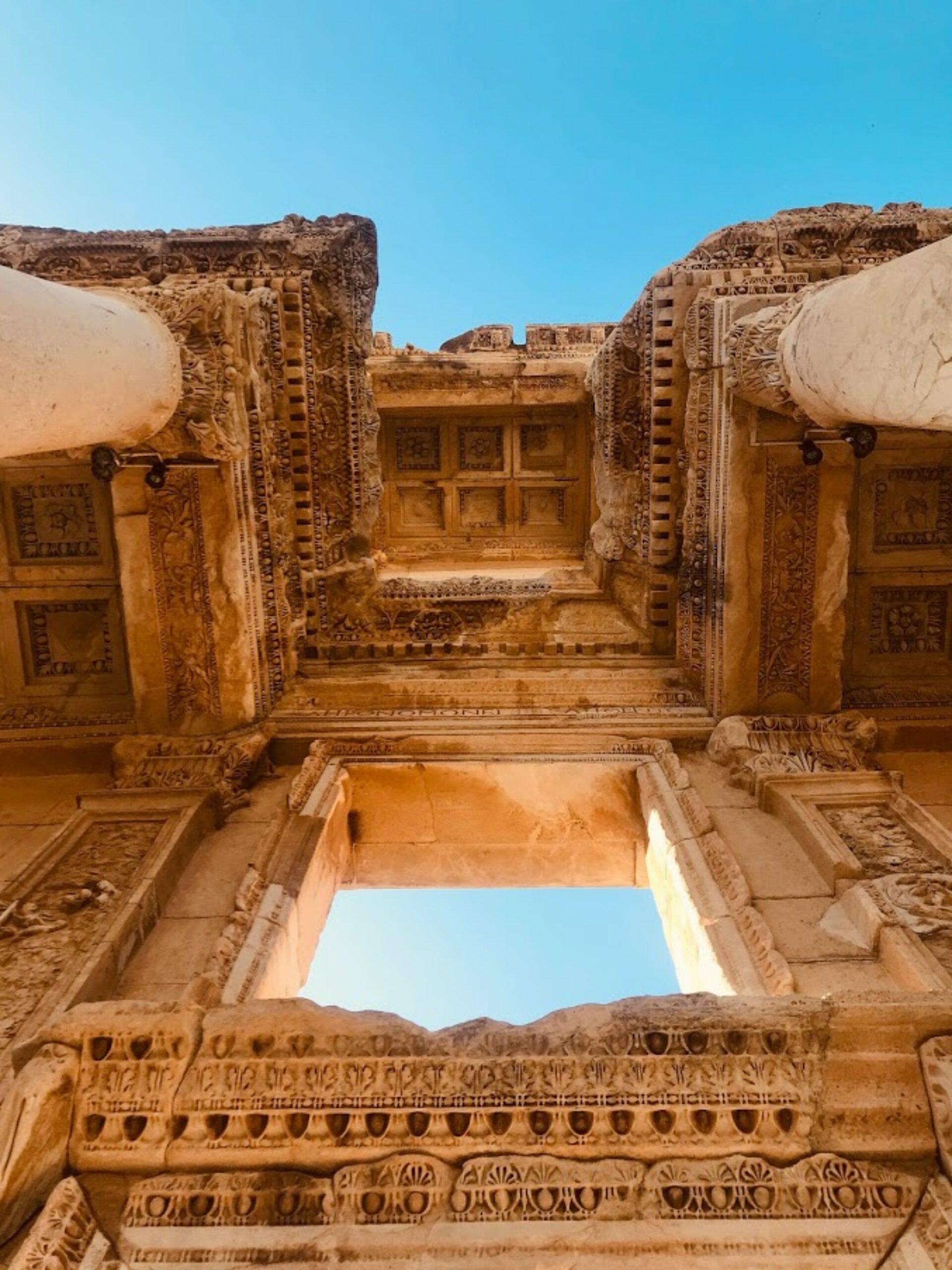God has given us a model for engaging a college campus with the gospel. This model is the city of Ephesus. You might have heard it said the city of Ephesus is the biblical equivalent of a college town. Let’s take a quick look:
Ephesus:
- A port city, people from all over the world met and gathered in this city.
- A highly “moral” city, but full of idolatry.
- An economy built around one central thing—the Temple of Artemis.
- An emphasis on intellectual knowledge. The Library of Celsus had over 11,000 scrolls of “wisdom.”
- Home to a giant amphitheater with a seating capacity of 24,000 people.
College towns in Texas:
- A gathering town, people from all over the world meet and gather in this town.
- People are looking to live highly moral lives but choose idolatry every single day.
- The smaller the college town, the more dependent the economy is on the university.
- Priority of intellectual pursuit of knowledge over spiritual realities.
- Football is king. Thousands of fans pack stadiums in Texas for home games. People gather to consume.
If we recognize that the city of Ephesus closely resembles a college town, we can look at the apostles’ actions as a guide to reaching a college town with the gospel.
How did the apostles engage the city of Ephesus?
The apostle John writes 1 John 1: 1-3 to the house churches near Ephesus. He starts with a simple message:
“That which was from the beginning, which we have heard, which we have seen with our eyes, which we looked upon and have touched with our hands, concerning the word of life . . . . we have seen it, and testify to it . . . . that which we have seen and heard we proclaim also to you” (1 John 1-3).
Ephesus was a town that valued knowledge and wisdom, yet the apostle John starts off his letter of encouragement by telling the people about firsthand experiences that he and other apostles experienced. John doesn’t start by sharing an elaborate philosophical argument for Christianity being the wisest and most logical religion (even though it is); he starts by sharing his experience.
This story parallels well with the story of Jesus healing the blind man. Jesus heals a man who was blind from birth and all the man could do was share his testimony of what happened. The blind man did not have all the correct theological answers. He only had his testimony:
“One thing I do know, that though I was blind, now I see” (John 9:25).
In 1 John, the apostle John starts with a firsthand story of how the person of Jesus completely changed his perception of the world. When we engage the college campus, we often start with what we believe and how that belief can change a student’s life. The apostle John goes a different route when dealing with the city of Ephesus. He starts with the story that he has personally seen and teaches all things from this context. We must train our students to share the truth of the gospel as they share their stories.
“Once I was blind, but now I see!”
Just as important as how John starts off 1 John is how he ends the book. His final encouragement to the house churches in Ephesus is that they “keep themselves from idols” (1 John 5:21). If we do not understand the culture of Ephesus, we can never fully understand why John ends with this crucial word. He tells them to abstain from idols. He knows Christ followers in the city of Ephesus will have to go against the normal practiced customs. He knows they will have to go against the grain to follow Jesus. Choosing not to worship Artemis is not easy for someone living in Ephesus because worshiping Artemis was the way of life for the Ephesians. A decision to not worship Artemis would be seen as an act of treason. People would question the Christians’ patriotism and loyalty to Ephesus. The apostle John knew the church in Ephesus needed encouragement to abstain from idol worship. Pressure faced them from every direction to give into the demands of society and to conform and worship Artemis. The church had to learn how to flee idolatry and stand and worship Jesus.
What about Paul?
How did the apostle Paul engage with the city of Ephesus and the worship of Artemis?
In Acts 19 we learn that the economy of Ephesus was being disturbed because people were beginning to worship Jesus rather than Artemis. Because people were no longer worshiping Artemis, business of Artemis shrines was declining. The economy was taking a hit because of people following Jesus. This led to a riot in the amphitheater. It is unclear the exact number of people present at the time of the riot, but there were enough for it to be chaotic. The fact that people were turning from Artemis to worship Jesus was not a light matter. The city was disturbed. The people of Ephesus displayed great pride in having the temple of the world-famous Artemis in their hometown. To be an Ephesian was to be proud of Artemis.
Paul was teaching the early church to go against the grain of society and to live in a distinctly different manner. The culture in Ephesus dramatically called for everyone to worship and follow Artemis, but Paul wanted the early church to see another path. A path that was marked by grace and forgiveness. A path that was built upon the worship of Jesus. A path that was built on sound doctrine and faithful teaching of the Word. A path that wasn’t persuaded and molded by the culture of Ephesus.
As college ministers, we have the same job as Paul. Our job is to help equip our students to live lives that are not persuaded and influenced by the forces around them but by the Spirit of God. The pressure to conform and blend in on a college campus mirrors that in the city of Ephesus. When people began to worship Jesus instead of Artemis, people noticed. In the same way, when students publicly worship Jesus on a college campus instead of the ever-popular worship of “self,” people will notice. Teach students how to worship Jesus.
Our students must be brave.
We must teach our students how to follow Jesus in a non-glamorous, faithful way because their faith will be tested. When our students live in a way that showcases their worship for Jesus above all other pursuits (self, knowledge, pleasure, morality, etc.) the campus will notice. The campus will notice the authenticity of a student who worships and follows Jesus despite incredible pressure to conform to cultural campus norms. Teach your students to go against the grain of society.
In short . . .
Teach sound doctrine.
Teach students how to share their stories.
Keep encouraging students not to be conformed to the ways of this world, but to be transformed by the renewing of their mind.
One last thing . . .
Paul sent Timothy to be the pastor at the church in Ephesus. As we have the opportunity, we must equip our leaders to be ready to go to the Ephesuses of our world. We must continue to invest in the next generation to lead the charge of reaching campuses. This strategy is the most effective method.
Tell your students about the city of Ephesus. Tell them about the bravery of the church in that town.







